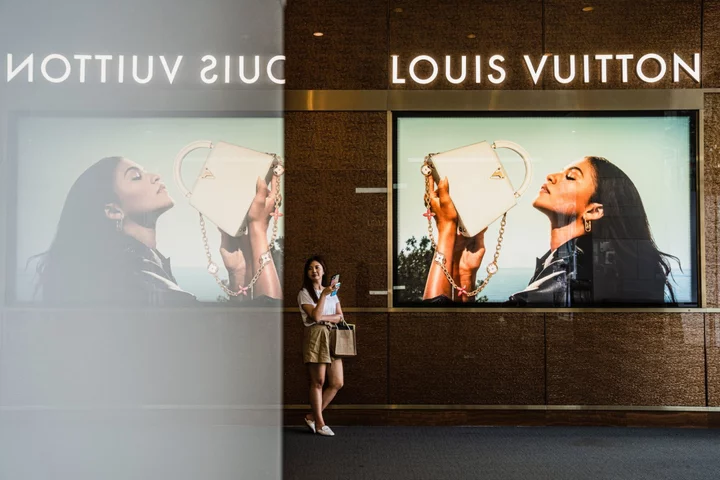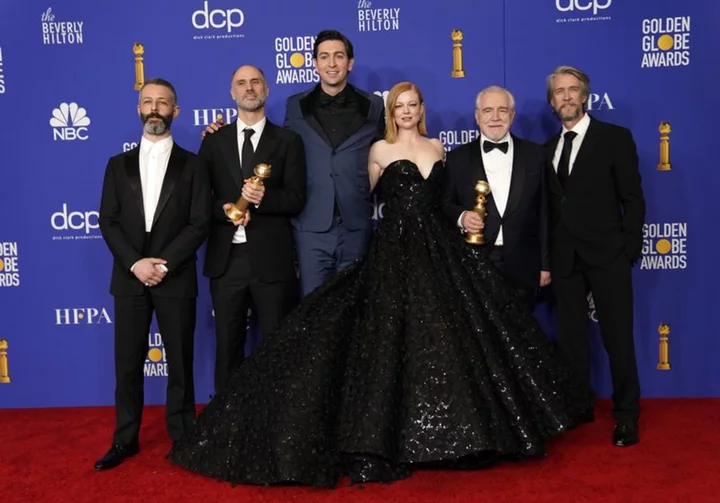European consumer-goods companies from LVMH to Unilever Plc and British American Tobacco Plc highlighted recent softness in US spending, even as Federal Reserve policymakers are expected to raise interest rates again.
The luxury-goods powerhouse, soap maker and tobacco company all emphasized weakness in US consumption when they reported earnings this week. Although their overall results were generally strong, American consumers have suddenly reined in purchases, especially with the discretionary portion of their budgets.
Entry-level luxury products, online and sales in smaller cities were particularly affected in the US, LVMH Moet Hennessy Louis Vuitton SE said. Its stock fell as much as 4.5% Wednesday, even though its broader performance was generally in line with expectations, buoyed by China.
“We’re seeing some slowdown” in the US, Chief Financial Officer Jean-Jacques Guiony told reporters. “This is weighing on growth.”
Demand is weakening after US consumers ran through the savings they piled up while receiving pandemic support from the government in recent years, Unilever CFO Graeme Pitkethly said Tuesday. The Dove soap maker is factoring in a mild US recession, possibly at the end of 2023 or the start of next year, he said.
‘Signs of Caution’
“Sentiment is dropping and consumers are starting to show signs of caution,” he said on a webcast. “Private-label growth has picked-up across the market, but particularly in ice-cream and dressings.”
Signs the US consumer is getting cold feet come as the Fed prepares to raise interest rates to a 22-year high on Wednesday. Policymakers will likely leave the door open for another move later this year to keep the pressure on in the fight to quash inflation.
British American Tobacco’s US cigarette volumes dropped 12% in the first half, and Chief Executive Officer Tadeu Marroco said the company needs to step up its efforts there. The company said it underperformed the market because its product range is tilted toward premium cigarettes. A ban on menthol tobacco in California is also weighing on consumption.
“It is a challenging external environment,” Marroco said. “High inflation and slower global growth are impacting consumers and business.”
While demand in China, Europe and Latin America helped fuel earnings at shoemaker Puma SE, North American revenue fell. New CEO Arne Freundt is trying to reignite growth in the US by adding more higher-priced soccer, basketball and running sportswear.
US retailers are planning to extend the back-to-school shopping season possibly into September given the weaker demand, Freundt told reporters. Inflation is eroding discretionary spending, particularly of low-income consumers, who are making choices more carefully than in the past, the CEO said.
“It’s really like a ‘need-it-now, buy-it-now’ mentality, which we are seeing, and obviously in that promotional environment they are also searching for the best deals,” he said. “Currently, I don’t see signs of improvement.”
--With assistance from Dasha Afanasieva, Angelina Rascouet, Andy Hoffman and Tim Loh.









